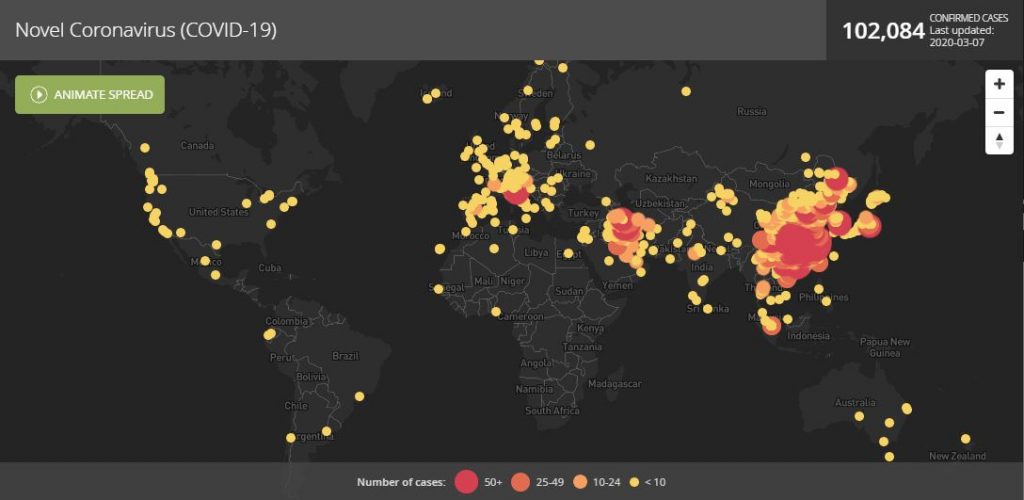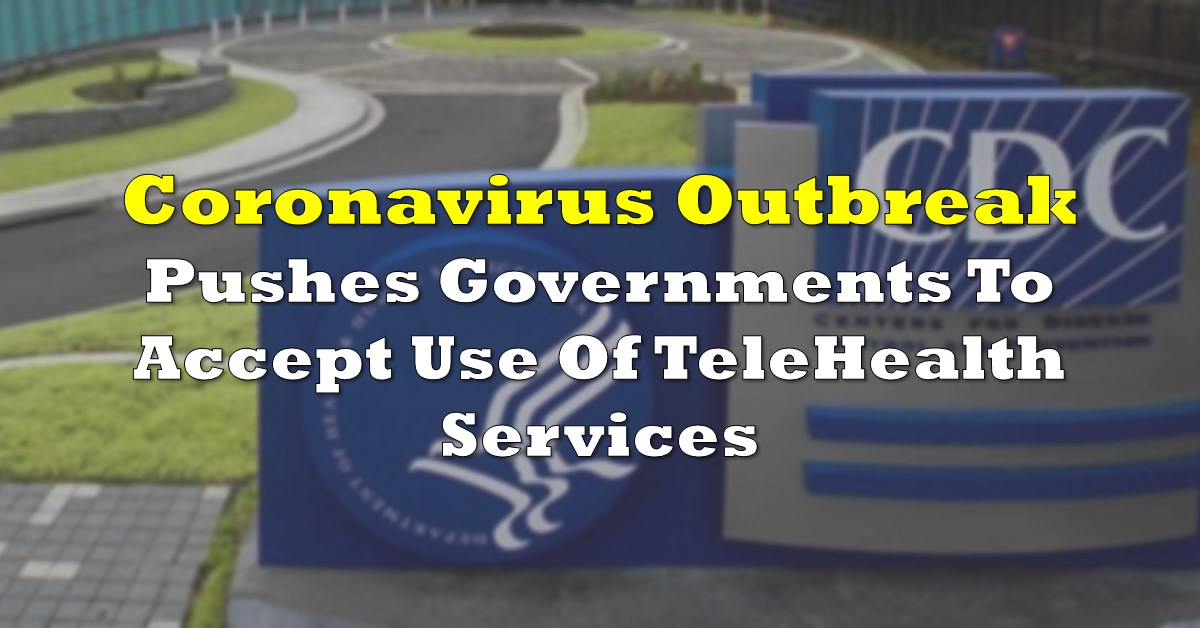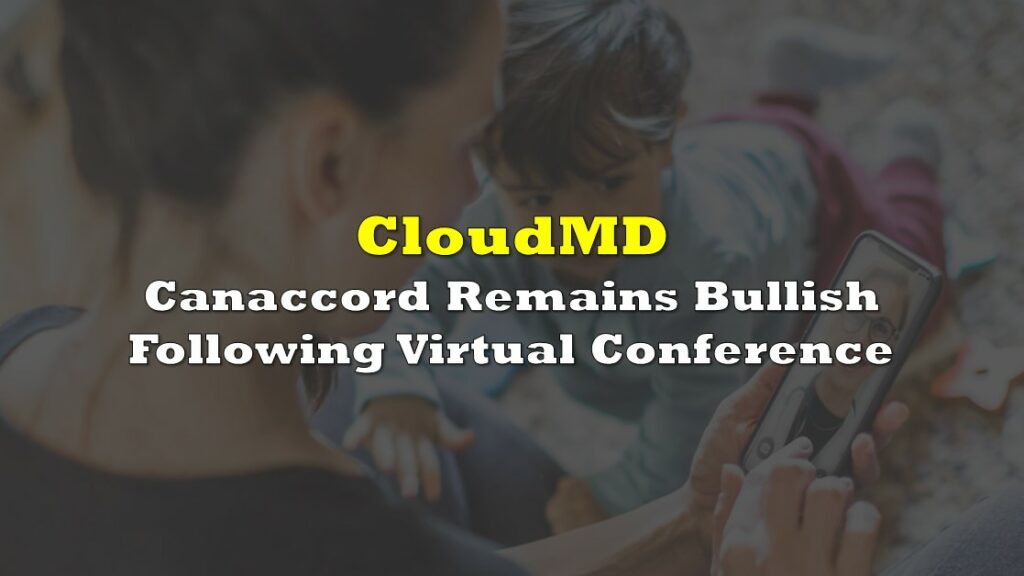The spread of the novel coronavirus, while not yet labelled a pandemic, has resulted in significant impacts to local communities and industry across North America as well as globally. Chief among which, is the healthcare sector as they fight to stay on top of local developments and recommendations for the quick spreading virus. Recent measures suggested by the CDC within a February telebriefing, while serious in nature, have proven to be a boon to the telehealth industry, which includes Canadian market participants such as CloudMD Software & Services (CSE: DOC) (OTC: DOCRF) and Well Health Technologies (TSX: WELL).

On February 26 the Center for Disease Control and Prevention, the leading public health institute within the United States, held a now routine telebriefing on the current state of the novel coronavirus, also known as COVID-19. While routine in nature, new language contained within was monumental for one particular industry: telemedicine.
On the topic of non-pharmaceutical interventions, referred to as NPI’s, the CDC’s Dr. Nancy Messonnier outlined several measures that can be used by individuals to prevent the spread of the novel coronavirus. Chief among the listed measures were community-based steps that “include social distancing measures designed to keep people who are sick away from others.” When referencing practical measures that should be included in the reduction of community exposure, Messonnier stated “For healthcare settings, this might including triaging patients differently, looking at how to increase telehealth services and delaying elective surgery.”
The news of the CDC endorsing the telehealth industry was monumental in nature. Subsequent to the telebriefing, United States President Donald Trump signed a bill on March 6 that provided $8.3 billion in emergency funding to combat the outbreak of the coronavirus. Included within, was $500 million in waivers for Medicare telehealth restrictions. The waiver essentially means that rules that previously restricted the use of video services by people on Medicare – which is primarily those aged 65 or older – will be waived, enabling them to be covered for telehealth visits.

To be clear, directly, this will have no impact on Canadian operators such as CloudMD or Well Health. What this does however, is it enables the use of telemedicine within North America to become normalized, while also influencing the actions of other health departments globally to begin to accept the use of telehealth services as a means of providing continuity of care for patients.
Within Canada, current telehealth service offerings are growing. Just a few short weeks ago, CloudMD launched their platform for residents of British Columbia, one of the most populous provinces in the country. The platform enables residents of BC to access virtual healthcare for free, with the visit being charged to the provincial health agency like any in-person physician visit would. The platform enables the patient to see a doctor in real-time, via their smartphone or desktop device while emphasizing continuity of care for the patient. At the time of launch, Dr. David Ostrow, current Chief Medical Officer of CloudMD and former CEO of Vancouver Coastal Health Authority stated, “Patients are able to do this without sacrificing the background medical knowledge that exists in their clinic records and with the assurance that they are getting a full range of services using CloudMD.”
When discussing the topic of telehealth amidst the coronavirus outbreak with Steve Darling of Proactive Investors on Friday, CloudMD CEO Dr Essam Hamza stated, “When a pandemic is declared, part of the pandemic planning is to tell patients don’t go to a clinic. Don’t go to the hospital. Because either you’re going to spread something, you’re going to get something, or you are going to use resources on the ground that need to be handling the things that need to be dealt with in the hospital or the clinic.” Dr. Hamza continued, “Telemedicine is part of the pandemic planning. .. Talk to a health professional through telemedicine, see if you really need to go see a doctor or not, and that will be more and more entrenched across the country and around the world.”
While the outbreak itself is unfortunate in nature, one thing that the spread of the coronavirus has done is forced governments to examine how exactly it is providing healthcare services to citizens. In early February, following the outbreak of coronavirus in China, the Canadian Medical Association released a report outlining that the country is lagging behind other countries on the topic of virtual care, a space in which we were once considered to be at the forefront.
According to the CMA, less than 0.15% of all public healthcare visits in Canada are occurring virtually based on surveys the association reviewed, a result of different policy’s on reimbursement from province to province, with some legislators found to be behind on the times. This however, is not the result of a lack of demand from patients whom are frequently paying for telehealth visits out of pocket. The task force is looking to change that with the latest report, and the outbreak of coronavirus is likely to impact the acceptance of telehealth services by provincial agencies as well.
CloudMD is doing their part in this regard, with the company announcing last week that they would be scaling their telemedicine app to help combat the ongoing coronavirus outbreak. The company acknowledged within the release that they are reaching out to multiple levels of government to determine how they can best assist in combating the outbreak with their telehealth services.
We are prepared to rapidly scale our resources as needed to meet the currently rising demand for telemedicine services. Our services can make an impact by providing triaging, support, information and medical advice for a worried public. Unnecessarily heading to a doctor’s office or emergency room not only increases demand on already stretched resources, but also increases a patient’s chances of exposure or spreading of virus. We will be looking to work with government agencies and health organizations to help support their patient populations.
Dr. Essam Hamza, CEO of CloudMD
FULL DISCLOSURE: CloudMD Software & Services is a client of Canacom Group, the parent company of The Deep Dive. The author has been compensated to cover CloudMD Software & Services on The Deep Dive, with The Deep Dive having full editorial control. Not a recommendation to buy or sell. Always do additional research and consult a professional before purchasing a security.









